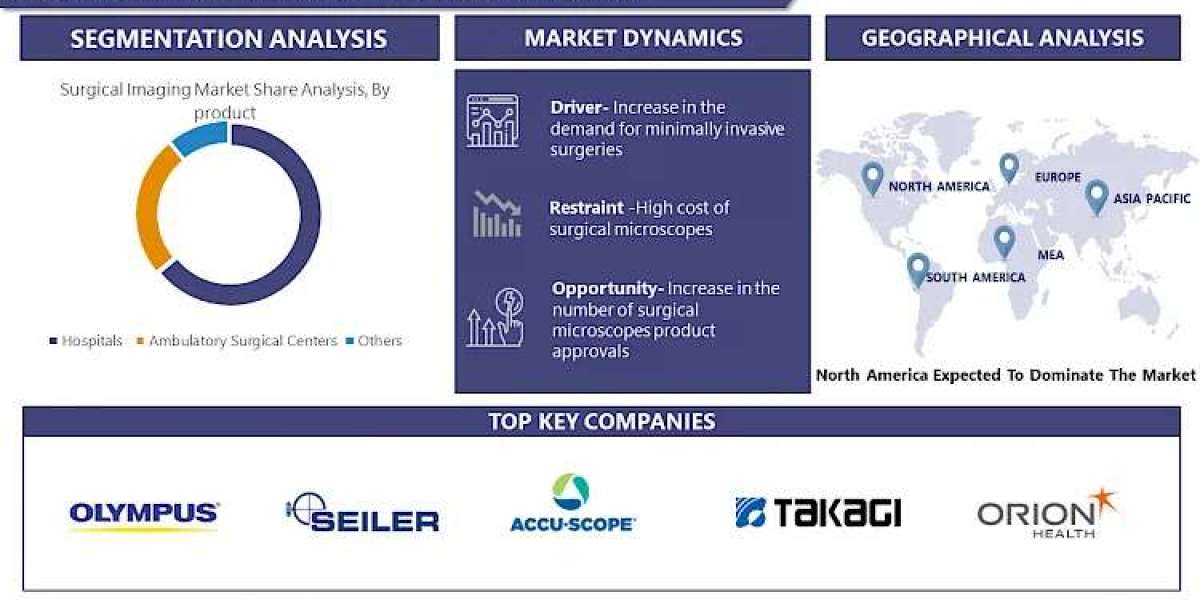Introduction
Artificial Intelligence (AI) has been transforming the way we do business across various industries, and grocery retail is no exception. The integration of AI in grocery retail is revolutionizing the way retailers operate, enhancing efficiency, and elevating customer experiences.
By developing AI technologies, grocery retailers can optimize inventory management, improve demand forecasting, personalize marketing strategies, and streamline supply chain operations. This comprehensive implementation boosts operational efficiency while significantly enhancing customer satisfaction, providing a competitive edge in the increasingly dynamic retail industry.
The impact of AI in grocery retail extends beyond operational improvements. Retailers are now capable of harnessing vast amounts of data to gain deeper insights into consumer behavior, preferences, and trends. This data-driven decision-making enables retailers to make more informed choices, customize their offerings to meet specific customer needs, and predict future trends with remarkable accuracy. AI-powered analytics facilitate the identification of inefficiencies and opportunities within the supply chain, leading to reduced costs and increased profitability.
The importance of AI in grocery retail cannot be overstated, particularly in the context of a rapidly evolving market where consumer expectations are leaning further towards personalization. AI technologies empower retailers to provide highly personalized shopping experiences, from customized product recommendations to dynamic pricing strategies that reflect real-time market conditions.

Overview of AI's Role in the Growth of the Grocery Retail Industry
AI in grocery retail is transforming the industry by improving efficiency and creating a greater focus oncustomer experiences.
Retailers use advanced retail technology to streamline operations and make data-driven decisions. These technologies help retailers stay competitive in the saturated and rapidly changing grocery market. Operational efficiency is crucial in today's grocery retail landscape, and AI provides the tools needed to achieve it. From managing inventory to personalized marketing, AI offers numerous applications that drive growth.
Growth Metrics and AI Applications
The role of AI in inventory management, demand forecasting, personalized marketing, and supply chain optimization illustrates how AI contributes to the growth of grocery retail. As the industry evolves, AI will continue to be needed to maintain a competitive edge and meet consumer demands. The impact of AI in grocery retail continues to be shown through various growth metrics and applications.
Inventory Management
AI helps retailers manage inventory more effectively. This leads to fewer stockouts and overstock situations leading to less waste and happier customers. Predictive analytics enable retailers to anticipate demand and adjust inventory levels accordingly, ensuring optimal stock levels at all times.
- Reduced stockouts: AI helps predict customer demand accurately, ensuring that popular items are always in stock. This reduces lost sales due to unavailable products and increases customer satisfaction.
- Minimized overstock situations: By forecasting demand, AI prevents excessive inventory build-up. This reduces storage costs and waste, improving the retailer's bottom line.
- Increased sales: Effective inventory management leads to higher product availability. When customers find what they need, it boosts sales and enhances their shopping experience.
Retailers using AI for demand forecasting can predict future sales trends accurately. This optimization reduces waste and improves overall efficiency.
Supply Chain Optimization
AI optimizes supply chains by analyzing large data sets. This predictive capability helps in managing logistics and anticipating disruptions. Supply chain optimization ensures that products move efficiently from suppliers to shelves.
- Improved logistics management: AI analyzes transportation routes and schedules to find the most efficient options. This reduces costs and delivery times, streamlining overall logistics performance.
- Predictive disruption management: AI forecasts potential disruptions in the supply chain. This allows retailers to take proactive measures, minimizing the impact on operations.
- Enhanced supply chain efficiency: AI automates various supply chain processes. This reduces manual work, increases accuracy, and speeds up the entire supply chain.
Customer Experience Enhancement
AI-driven chatbots and virtual assistants simplify and speed up customer service. They provide real-time support and personalized shopping experiences for customers with common questions allowing for real-time support. Customer experience is greatly enhanced when AI tools are used appropriately.
- Real-time customer support: AI-powered chatbots can handle multiple queries simultaneously. They provide instant responses, improving the customer service experience for simple requests.
- Personalized shopping experiences: AI tailors the shopping experience to individual preferences. This increases customer satisfaction and encourages repeat business.
- Higher customer satisfaction: With better service and personalized interactions, customers are more likely to be satisfied. This leads to increased loyalty and positive word-of-mouth referrals.
AI in grocery retail drives substantial growth. By adopting AI technologies, grocery retailers improve operational efficiency, customer experiences, and decision-making.
Benefits of AI for Grocery Retailers
The benefits of integrating AI in grocery retail help grocers improve their operational efficiency through automation processes and provide AI-driven insights to enhance the customer experience.As retailers continue to adopt these technologies, they will be better equipped to meet the demands of modern consumers and stay ahead in a competitive market.
Detailed Benefits of AI Integration in Grocery Retail
The integration of AI in grocery retail offers numerous benefits that enhance the overall efficiency and profitability of retailers. The following benefits illustrate the transformative impact of AI in this industry.
Operational Efficiency
AI significantly boosts operational efficiency in grocery retail. By automating routine tasks and streamlining processes, AI enables retailers to operate more smoothly and cost-effectively.
- Reduced manual labor: AI automates repetitive tasks such as inventory tracking and order processing. This reduces the need for manual labor, lowering costs and minimizing errors.
- Improved workflow management: AI optimizes workflow by identifying bottlenecks and suggesting improvements. This ensures that operations run smoothly and efficiently.
- Enriched resource allocation: AI analyzes data to allocate resources effectively. This helps retailers make the best use of their workforce, equipment, and inventory.
Automated Processes
The implementation of automated processes through AI technology transforms how grocery retailers manage their day-to-day operations. Automation leads to faster, more accurate, and cost-effective operations.
- Streamlined inventory management: AI automates inventory tracking and reordering processes. This ensures that stock levels are maintained optimally without manual intervention.
- Efficient checkout systems: AI-powered checkout systems reduce waiting times and enhance the customer experience. This leads to higher customer satisfaction and repeat business.
- Optimized supply chain operations: Automation in supply chain management improves logistics, reduces delays, and cuts costs. This results in a more reliable and efficient supply chain.
AI-Driven Insights
AI provides retailers with valuable AI-driven insights that inform strategic decisions. These insights are derived from analyzing large volumes of data, leading to better decision-making.
- Data-driven decision-making: AI analyzes sales data, customer behavior, and market trends. This information helps retailers make informed decisions that enhance their competitive edge.
- Predictive analytics: AI uses historical data to predict future trends and behaviors. This enables retailers to anticipate market changes and adjust their strategies accordingly.
- Customer behavior analysis: AI examines customer data to identify patterns and preferences. This allows retailers to tailor their offerings to meet customer needs more effectively.
Improved Customer Experience
AI sweetens the customer experience by providing personalized and efficient services. This leads to higher customer satisfaction and loyalty.
- Personalized recommendations: AI analyzes customer data to offer personalized product recommendations. This improves the shopping experience and increases sales.
- Real-time customer support: AI-powered chatbots provide instant support to customers, answering queries and resolving issues quickly.
- Seamless shopping experience: AI integrates various shopping channels, creating a seamless and convenient experience for customers.
By developing these retail technologies, grocery stores can optimize various aspects of their operations.
AI in Inventory Management: A Game Changer
AI is a game changer in inventory management for grocery retailers. By utilizing predictive analytics and big data in retail, AI provides accurate demand forecasting, real-time inventory tracking, and comprehensive data analysis. The benefits include reduced waste, optimized stock levels, and improved profitability.
Explanation of AI's Impact on Inventory Management
AI in grocery retail has simplified the way inventory is managed, providing unprecedented accuracy and efficiency. By leveraging predictive analytics and big data in retail, AI enables grocery stores to maintain optimal stock levels, reduce waste, and enhance overall inventory management.
Predictive Analytics in Inventory Management
AI-driven predictive analytics supports inventory management for better business practice. By analyzing historical sales data, seasonal trends, and external factors, AI can accurately forecast demand and optimize inventory levels.
- Accurate demand forecasting: AI analyzes past sales data to predict future demand, ensuring that popular items are always in stock. This reduces the risk of stockouts and keeps customers satisfied.
- Seasonal trend analysis: AI identifies patterns in sales data related to seasons and events. This helps retailers prepare for peak periods by adjusting inventory levels accordingly.
- External factors consideration: AI incorporates external factors like weather conditions and market trends into its analysis.
This comprehensive approach leads to more precise demand forecasting and inventory planning.
Big Data in Retail for Inventory Management
The use of big data in retail allows AI to process vast amounts of information, providing valuable insights for inventory management. This data-driven approach enhances decision-making and operational efficiency.
- Comprehensive data analysis: AI processes large volumes of data from various sources, including sales records, customer feedback, and market trends. This holistic analysis provides deeper insights into inventory needs.
- Real-time inventory tracking: AI continuously monitors inventory levels and sales data in real time. This ensures that stock levels are adjusted promptly to meet changing demands.
- Supplier performance evaluation: AI evaluates supplier performance based on delivery times, product quality, and other metrics. This helps retailers select the best suppliers and improve supply chain efficiency.

Benefits of AI in Inventory Management
There are many benefits of integrating AI into inventory management including significant improvements in efficiency and profitability. Some of the other benefits include:
- Reduced waste: AI minimizes waste by accurately forecasting demand and optimizing stock levels. This reduces the amount of unsold products that expire or become obsolete.
- Optimized stock levels: AI ensures that inventory levels are maintained at optimal levels. This prevents both overstock and stockout situations, enhancing customer satisfaction and reducing storage costs.
- Improved profitability: By reducing waste and optimizing inventory, AI helps retailers increase their profitability. Efficient inventory management leads to lower costs and higher sales.
As AI in grocery retail continues to evolve, its impact on inventory management will further improve the efficiency and success of grocery retailers.
Labor Forecasting in Grocery Retail
AI is transforming labor forecasting and workforce management in grocery retail. By utilizing retail analytics and data-driven decision-making, AI provides accurate staffing predictions, dynamic scheduling, and employee performance analysis. The benefits include optimized staffing, cost savings, and improved operational efficiency.
AI's Role in Labor Forecasting and Workforce Management
AI in grocery retail is streamlining labor forecasting and workforce management through data and patterns. By leveraging retail analytics and data-driven decision-making, AI enables grocery retailers to predict labor needs accurately and manage their workforce efficiently. This technological advancement ensures that the right number of staff is scheduled at the right times, improving both operational efficiency and customer satisfaction.
Retail Analytics in Labor Forecasting
Retail analytics contribute to AI-driven labor forecasting. By analyzing historical sales data, customer foot traffic, and other relevant metrics, AI can provide accurate predictions for staffing requirements.
- Accurate staffing predictions: AI analyzes patterns in sales and customer traffic to forecast staffing needs. This ensures that stores are neither overstaffed nor understaffed, optimizing labor costs and enhancing customer service.
- Dynamic scheduling: AI adjusts staffing schedules based on real-time data. This allows for flexibility and ensures that labor resources are allocated efficiently throughout the day.
- Employee performance analysis: AI evaluates employee performance metrics to identify high-performing staff. This information helps in making informed decisions about promotions, training, and task assignments.
Data-Driven Decision-Making in Workforce Management
The use of data-driven decision-making enhances workforce management by providing actionable insights. AI processes large amounts of data to inform strategic decisions about staffing and labor allocation.
- Improved productivity: AI identifies trends and patterns that impact productivity. This allows managers to make data-driven decisions that enhance overall workforce productivity.
- Optimized labor costs: By accurately forecasting labor needs, AI helps reduce labor costs. Efficient scheduling ensures that employees are only scheduled when needed, minimizing unnecessary labor expenses.
- Improved employee satisfaction: AI-driven scheduling considers employee preferences and availability.
When accurate information is used, it can lead to higher job satisfaction and reduces turnover rates.

Benefits of AI in Labor Forecasting
The integration of AI into labor forecasting offers numerous benefits, including optimized staffing and significant cost savings.
- Optimized staffing: AI ensures that the right number of staff is scheduled based on predicted customer demand. This enhances customer service and operational efficiency.
- Cost savings: Accurate labor forecasting reduces labor costs by preventing overstaffing. Efficient scheduling minimizes unnecessary labor expenses while maintaining high service levels.
- Improved operational efficiency: AI streamlines workforce management processes, allowing managers to focus on other critical tasks. This improves overall store efficiency and performance.
As AI in grocery retail continues to advance, its role in labor forecasting will further enhance the efficiency and success of grocery retailers.
Forthcoming Trends of AI in Grocery Retail
The future of AI in grocery retail is bright, with numerous smart retail solutions and ethical considerations shaping the industry's evolution. Innovations such as AI-powered checkout systems, advanced inventory management, and enhanced customer personalization will drive the next wave of growth. Ethical practices in AI implementation will ensure transparency, data privacy, and fairness. Upcoming technologies like AI-driven robotics, voice-activated shopping, and augmented reality will redefine the shopping experience.
Future Trends and Innovations in AI for Grocery Retail
The future of AI in grocery retail is marked by continuous innovation and the integration of smart retail solutions. As technology advances, grocery retailers are poised to adopt new AI-driven strategies that will further transform the industry. These trends are set to enhance operational efficiency, customer experience, and overall market competitiveness.
Smart Retail Solutions
Smart retail solutions are at the forefront of innovative trends in grocery retail. These solutions leverage AI to create more efficient, personalized, and engaging shopping experiences.
- AI-powered checkout systems: Automated checkout systems using AI will reduce wait times and improve the efficiency of the checkout process. This will enhance customer satisfaction and streamline store operations.
- Advanced inventory management: AI will continue to evolve in managing inventory with greater precision. This includes real-time tracking of stock levels, automated reordering, and predictive demand forecasting.
- Enhanced customer personalization: Future AI systems will provide even more personalized shopping experiences.
Smart retail solutions will include tailored recommendations, dynamic pricing, and personalized promotions based on individual shopping behaviors.
AI Ethics in Retail
As AI is used more in the grocery industry, the importance of AI ethics in retail cannot be overstated. Ethical considerations will shape how AI is implemented and used in the industry.
- Transparency in AI algorithms: Retailers will need to ensure that their AI systems are transparent and understandable to customers. This includes clearly explaining how AI-driven decisions are made.
- Data privacy and security: Protecting customer data will remain a top priority. AI systems must comply with stringent data privacy regulations to maintain customer trust.
- Addressing bias in AI: Efforts will be made to identify and mitigate biases in AI algorithms. This ensures fair and unbiased decision-making processes.
Predictions and Upcoming Technologies
The landscape of AI in grocery retail will continue to evolve with the introduction of new technologies and innovative approaches. Looking into the future? Here’s what we might see:
- AI-driven robotics: Robotics powered by AI will become more common in grocery stores. These robots will assist with tasks such as restocking shelves, cleaning, and even assisting customers.
- Voice-activated shopping: Integration of AI with voice assistants will make shopping more convenient. Customers will be able to use voice commands to create shopping lists, place orders, and receive personalized recommendations.
- Augmented reality (AR) experiences: AR combined with AI will provide immersive shopping experiences. Customers will be able to visualize products in their home environment or receive real-time product information through AR interfaces.
As these trends unfold, grocery retailers will be better equipped to meet the demands of modern consumers and stay competitive in a rapidly changing market.
Conclusion
AI in grocery retail has significantly transformed the industry by enhancing operational efficiency, improving inventory management, and personalizing customer experiences.
As the technology evolves, smart retail solutions and ethical considerations will drive further innovation, ensuring transparency, data privacy, and fairness. The adoption of AI technologies is essential for grocery retailers to stay competitive and meet modern consumer demands. Staying updated with AI trends and integrating these advancements contribute to continued growth and success in the dynamic retail industry.
Frequently Asked Questions
How is AI transforming grocery retail?
AI is enhancing operational efficiency, improving inventory management, personalizing customer experiences, and optimizing supply chain operations.
What are the key benefits of AI in grocery retail?
The key benefits include increased operational efficiency, reduced costs, improved customer satisfaction, and better decision-making through data-driven insights.
How does AI improve inventory management for grocery stores?
AI uses predictive analytics to forecast demand, optimize stock levels, reduce waste, and ensure product availability.
Can AI help with demand forecasting in grocery retail?
Yes, AI accurately predicts future sales trends by analyzing historical data, seasonal patterns, and external factors.
What role does AI play in personalized marketing?
AI analyzes customer data to provide tailored recommendations, targeted promotions, and personalized shopping experiences, increasing customer engagement and loyalty.



